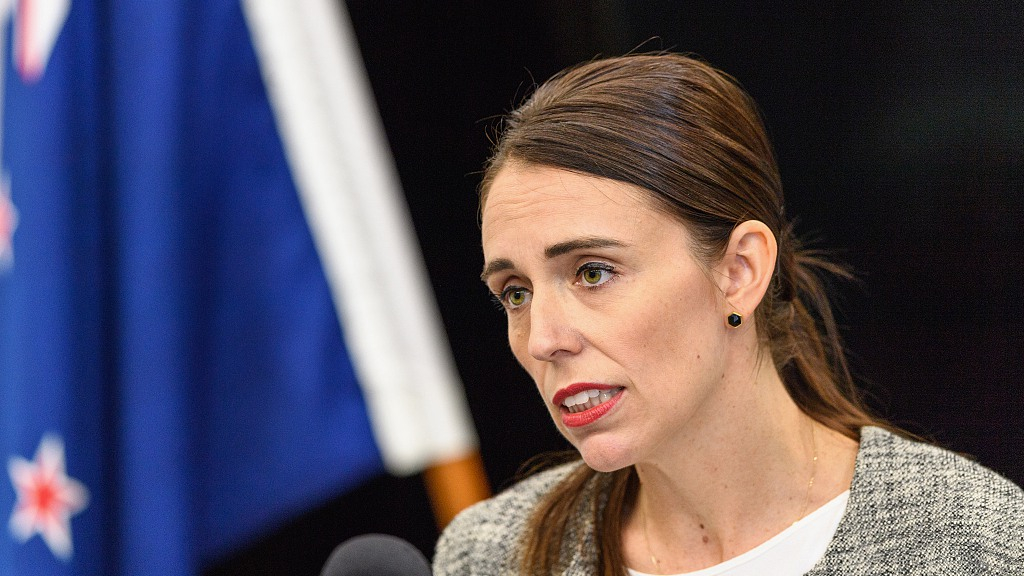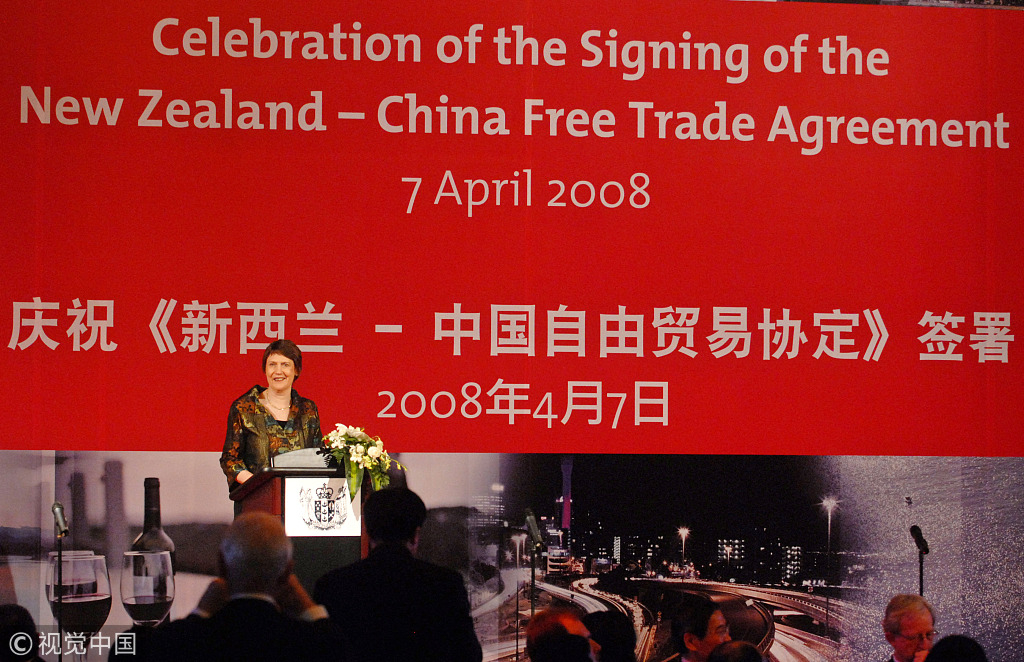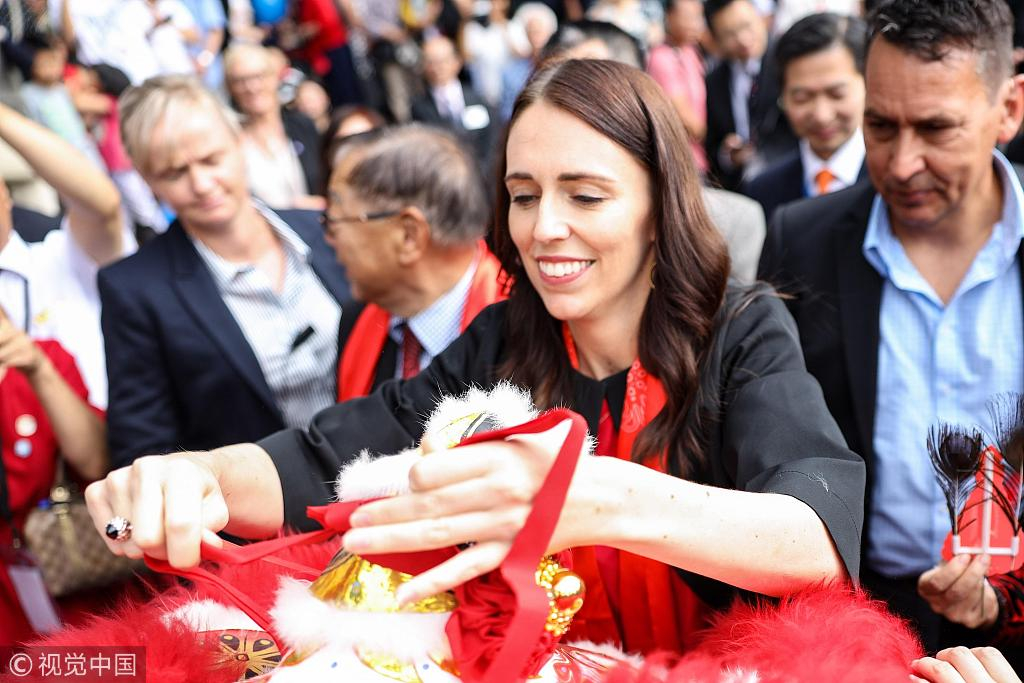
Opinion
14:36, 31-Mar-2019
Will Ardern's visit put China-New Zealand relations back on track?
David Lee

Editor's note: David Lee is a consultant and author based in Beijing who works on cross-cutting themes of energy, health, international politics and international development. The article reflects the author's opinion, and not necessarily the views of CGTN.
Today New Zealand Prime Minister Jacinda Ardern kicks off her one day trip to Beijing on March 31, which is expected to include a meeting with Chinese President Xi Jinping. It will be the first time for Ardern to visit China after 18 months of taking office. Amid current tensions in the bilateral relations, Ardern's visit to China is seen as an opportunity for the two countries to smooth things out.
As a member of the Five Eyes security alliance with the United States, the United Kingdom, Canada, and Australia, New Zealand is apparently following the American lead in banning Huawei 5G equipment. Its top spy agency, New Zealand Government Security Bureau, made the decision last year to block Huawei from participating in the 5G upgrade of Spark Telecom, formerly New Zealand Telecom, citing "significant network security risks." Ardern said last month, though, that no final decision had been made on Huawei's participation in the country's 5G network.
Over nearly a half-century since the establishment of diplomatic relations between the two countries, China has transformed to be the second largest economy in the world. Their bilateral relationship has also progressed along the way: New Zealand is the first developed country to recognize China as a market economy in 2008 and then sign a free trade agreement with China in 2008. Now China is New Zealand's largest trading partner and a key customer for its dairy and other agricultural products. There is great potential to be tapped for the benefit of both countries.

Former New Zealand prime minister Helen Clark delivers a speech at the celebration party for the FTA (Free Trade) agreement between New Zealand and China on April 7, 2008 in Beijing, China. /VCG Photo
Former New Zealand prime minister Helen Clark delivers a speech at the celebration party for the FTA (Free Trade) agreement between New Zealand and China on April 7, 2008 in Beijing, China. /VCG Photo
Yet over the past few months, pressured by the United States to ban Huawei equipment, New Zealand has found itself in dilemma. It must also be noted, though, whatever so-called security concerns as alleged by the United States about Huawei equipment have never been substantiated. While Huawei and China have been arguing strongly against the unfair treatment, New Zealand has failed to justify a significant decision that compromises its own 5G infrastructure plan.
Last month, local media in New Zealand was already lamenting the bilateral relationship with China had reached a "new low," citing Ardern's visit to China hanging in the air and a flagship cultural and tourism project to attract Chinese visitors postponed. No wise policymakers would like this sorry situation to continue.
Then came the official announcement of Ardern's China visit, and her very first one since taking office as New Zealand prime minister in 2017. Of course, It would take quite some logistics efforts to pack all meetings and activities in a very tight single-day itinerary, but more importantly, it'd take vision and determination for Ardern and her policy-making team to make her visit a meaningful success.

New Zealand Prime Minister Jacinda Ardern makes her appearance at the Chinese New Year Festival and Day Market in Auckland, New Zealand, February 2, 2019. /VCG Photo
New Zealand Prime Minister Jacinda Ardern makes her appearance at the Chinese New Year Festival and Day Market in Auckland, New Zealand, February 2, 2019. /VCG Photo
Will New Zealand's Ardern be able to put relations with China back on track? To answer this question, Kiwis must first and foremost answer a key question about its own sovereign, independent judgment. To be more specific, to what extent do Kiwis allow their relations with China to be held hostage by Americans?
New Zealand is the first Western economy to sign a Memorandum of Understanding on the Belt and Road Initiative (BRI) with China. With the Second BRI forum in Beijing approaching at the end of April, it seems to be the right time for New Zealand to get past ideology and be more pragmatic. As key players in the Asia-Pacific region, both countries share the responsibilities to maintain a healthy and dynamic trading infrastructure.
Now that Ardern is finally covering the long physical distance to travel from New Zealand to China, she should also be ready to embark on the strategic journey to meet the Chinese halfway.
(If you want to contribute and have specific expertise, please contact us at opinions@cgtn.com.)

SITEMAP
Copyright © 2018 CGTN. Beijing ICP prepared NO.16065310-3
Copyright © 2018 CGTN. Beijing ICP prepared NO.16065310-3